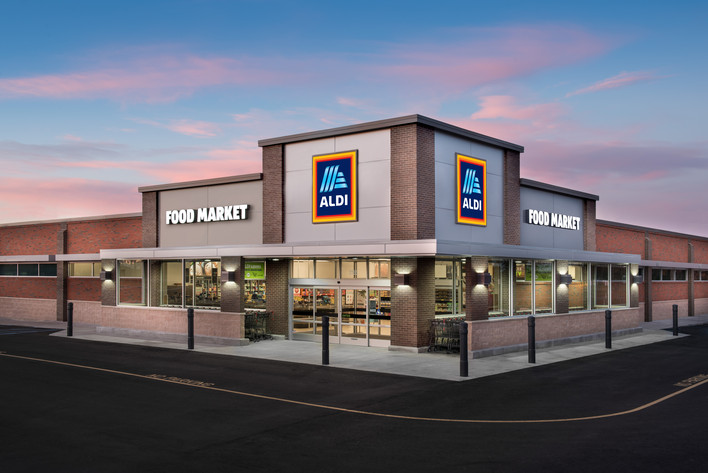Aldi is a small-box discount supermarket and one of the largest retailers in the United States. It began as a small, family-owned food store in Germany at the beginning of the 20th century.
The company became Aldi in 1962 after brothers Karl and Theo Albrecht assumed management from their mother. The brothers initially named the store "Albrecht-Diskont" ("Albrecht Discount" in English), which conveniently translates to "Aldi."
However, the brothers split Aldi into two separate companies in 1966 due to a disagreement (allegedly over selling cigarettes). Aldi Sud operates Aldi in Southern Germany, the U.K., Ireland, Australia, China, and the U.S. (including Winn-Dixie). Aldi Nord operates stores in Northern Germany, Belgium, France, the Netherlands, Poland, and Spain. Aldi Nord also owns Trader Joe's, which it bought from the founder (Joe Coulombe) in 1979.
Here, we'll discuss what Aldi is, whether it's publicly traded, when it might offer an initial public offering (IPO), whether it is profitable, and whether investing in it is a good idea. We'll also take a brief look at Aldi's closest competitors, as well as the ways you might try to gain indirect exposure to Aldi.

Is Aldi publicly traded?
As of late-2025, Aldi was not publicly traded. Both entities are privately owned multinational corporations, and as such, shares cannot be bought on any public stock exchange.
Aldi has not yet gone public for a few reasons. First, Aldi has been enormously profitable without shareholder money. Offering shares to the public would ultimately mean ceding some level of corporate control to non-family members. Understandably, the family would want to keep their legacy private.
Next, Aldi has the resources to grow and expand without needing outside money. For example, in 2023, Aldi Sud agreed to buy 400 Winn-Dixie and Harvey supermarkets in the Southeast to increase its U.S. store count.
The acquisition was in addition to the $2.5 billion it has invested to expand its presence in the Southeast alone in recent years. As it continues to expand, the company aims to invest $9 billion to add 800 new stores in the U.S. by 2028.
It's clearly important to the company's founders that incentives remain aligned between Aldi and its customers -- without any outside influence. Conservatively, the company is estimated to be worth about $50 billion.
Finally, Aldi is known for its low prices on food and other merchandise and its simplified operating system. An IPO could only serve to complicate its already successful corporate structure. The company operates smaller-than-typical stores and smaller staff pods, which allows it to control its costs better than most rivals.
Aldi’s business model
Aldi strives to provide high-quality groceries at the lowest possible price. It does that through a business model that relies on the following factors:
- Limited product selection with a private label focus
- A no-frills shopping experience. Products are often displayed in their original shipping cartons while customers bag their own groceries.
- Highly efficient operations
- Cost-saving store design and operations.
The company's business model keeps costs low, enabling Aldi to generate more revenue and profit per square foot from its smaller store footprint.
When will Aldi IPO?
As mentioned, don't count on an IPO from Aldi any time soon. The company is a privately owned family business, and the current leadership team has not expressed any interest in an IPO, much less one in the near future. However, if Aldi did launch an IPO, it would be greatly anticipated and likely very popular.
Is Aldi profitable?
Yes, Aldi is an immensely profitable company, although its specific financial data is difficult to find compared to most publicly traded companies. Collectively, Aldi's net global sales were on track to top $150 billion in 2023, according to data from Statista. This revenue number considers Aldi's subsidiaries, including Aldi USA.
As a privately owned company, the degree to which Aldi's profitability has grown is difficult to pinpoint. However, it's reasonable to estimate that both in-store efficiency and broader economic factors have led to significant profit growth. Given the company's plans to invest $9 billion to expand its store footprint (with no need to go public to fund its growth), Aldi is likely very profitable.
The bottom line
Aldi has undoubtedly become one of the more competitive discount supermarkets nationwide and has gained notoriety in recent years for its low-cost offerings. Unfortunately, for many aspiring shareholders, Aldi is not a publicly traded company and is unavailable for direct investment. Aldi is family-owned and will likely remain that way for the foreseeable future.
Still, there are ways to invest in companies similar to Aldi, either by buying the publicly traded shares of a competitor or by purchasing sector ETFs that follow consumer staples stocks. Although the choices aren't pure-play investments in Aldi, you might receive some of the same exposure.
Aldi is a bit more of an enigma than most people would like, but privately owned companies tend to operate this way to protect their trade secrets.























